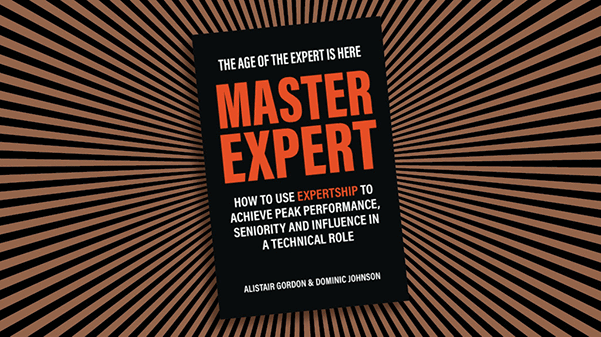
Expertship resource centre
How to use Expertship self-assessment to coach your technical team to develop their business skills
Expertship Primer
How to use Expertship self-assessment to coach your technical team to develop their business skills
Summary
Technical leaders need tools to help their technical subject matters experts grow their capabilities. But often these aren’t readily available.
Most organizations have a plan to develop their people leaders. But not their experts.
Experts need the same development opportunities as leaders: the tools should include a clear career ladder, a capability framework detailing the skills needed to climb each rung of the ladder, and a schedule of appraisals to keep skills development on track.
These tools provide leaders in organizations a clear path to coach building capability.
While these tools are almost always available for people coaching leaders, they are rarely available for technical leaders coaching their SMEs.
But now they are.
Firstly, at a senior level, technical subject matter experts need three sets of capabilities, described in The Expertship Model:

-
In the relationship domain, the technical expert collaborates with stakeholders.
-
In the value domain, the SME drives change and creates value (and not just strictly commercial value. Non-profits and government view “value” quite differently).
-
In the technical domain, the technical SME leverages their expertise to solve business problems.
The Expertship Model is a high-level summary of a capability framework to develop technical teams. And below is an example of a tool to let experts self-assess their Expertship skills (subscribers can download a clean copy of both at the end of this article).

This diagram shows the self-assessment of a financial department expert, Edward (a real person we worked with recently). Looking across the rows, you can see that he rated himself at expert level across the technical domain, and expert in two capabilities in the relationship domain and one in the value domain.
Why are self-assessments a useful management tool for leaders of technical teams?
The Expertship Model and its self-assessment tool provide two tools to facilitate concrete, actionable conversations by technical heads with their individual experts.
A self-assessment asks a technical specialist to consider what “good” and “bad” execution look like for each capability. (A more formal assessment, The Expertship 360, is available for experts who really want to find out how they are currently being experienced as an expert, and opportunities to add more value.)
Many technical experts or SMEs have never performed this sort of exercise, particularly to review their broader enterprise skills.
These tools help technical managers of expert teams to ask their expert to consider how well they deliver against each of these carefully defined capabilities.
This creates an effective start to coaching. When technical expert realizes the opportunities for professional growth, it energizes them towards building their capability. Exactly the result every technical head wants.
Leaders of technical teams can undertake this coaching themselves, or bring in the experts on expert coaching (Coaching for Experts: What is it and why is it needed?).
Register below to download a clean copy of the self-assessment table.
Use the assessment as a first step to start conversations with your team members about the skills they need to develop to progress. Then read on to discover tools that will help your team deepen their commercial acumen and influencing skills.
Other tools leaders of technical teams may find effective:




